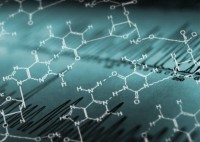
That essential oxygen we breathe is delivered to our organs and body tissues via the blood pumped throughout our bodies. Scientists have known for quite some time that adequate oxygen is vital to healthy organs and proper brain function.
A recent cancer study using mice suggests extra oxygen could boost the immune system’s ability to fight cancer cells. Immunotherapy is the cornerstone of our non-toxic treatment protocols at Issels® Integrative Immuno-Oncology.
Tumor growth
Most of the time, the immune system identifies and destroys abnormal cells, preventing them from developing into cancer. Once a tumor begins to develop, it has its own defenses to block attacks from the immune system. Tumors grow at a faster rate than the blood supplied oxygen can combat. This creates an oxygen-deprived environment that is more conducive to tumor growth. The lack of oxygen is a catalyst to the tumor making adenosine. The adenosine molecule neutralizes the tumor fighting T cells of the immune system.
Supplement oxygen cancer therapy
The study led by Michail Sitkovsky, who is the director of the Tissue Protection Institute at Northeastern University, used mice with lung tumors to test how extra oxygen altered the tumor created environment and helped the immune system do its job.
The tumors of mice that were in the high-oxygen group shrank. The shrinking was more significant when the mice were injected with additional T cells. What makes the results even more exciting is that oxygen is so well tolerated by the human body, unlike many traditional cancer treatments.
For more information on the benefits of immunotherapy and all the latest cancer news, visit Issels.com and sign up for our free e-Newsletter.



